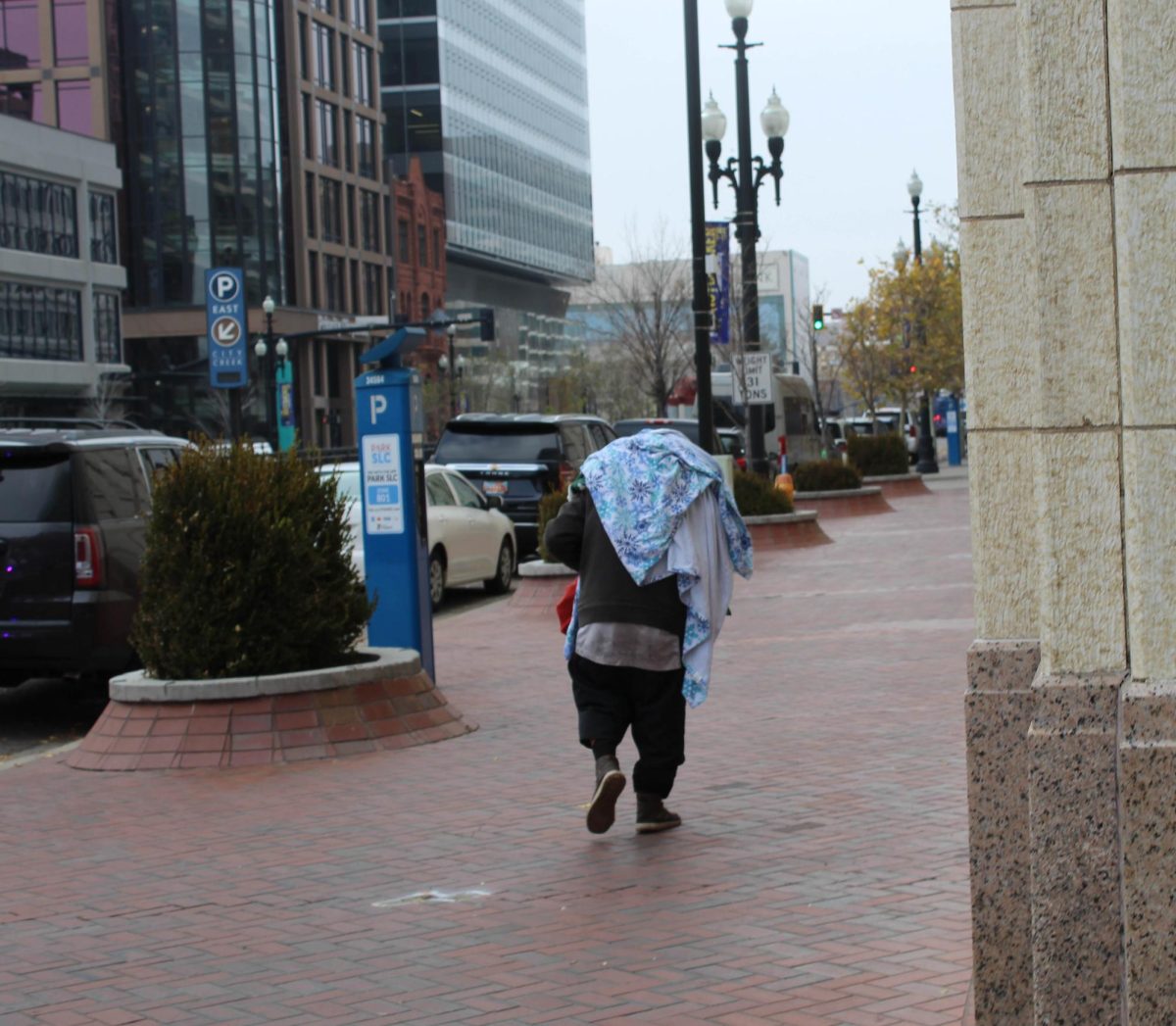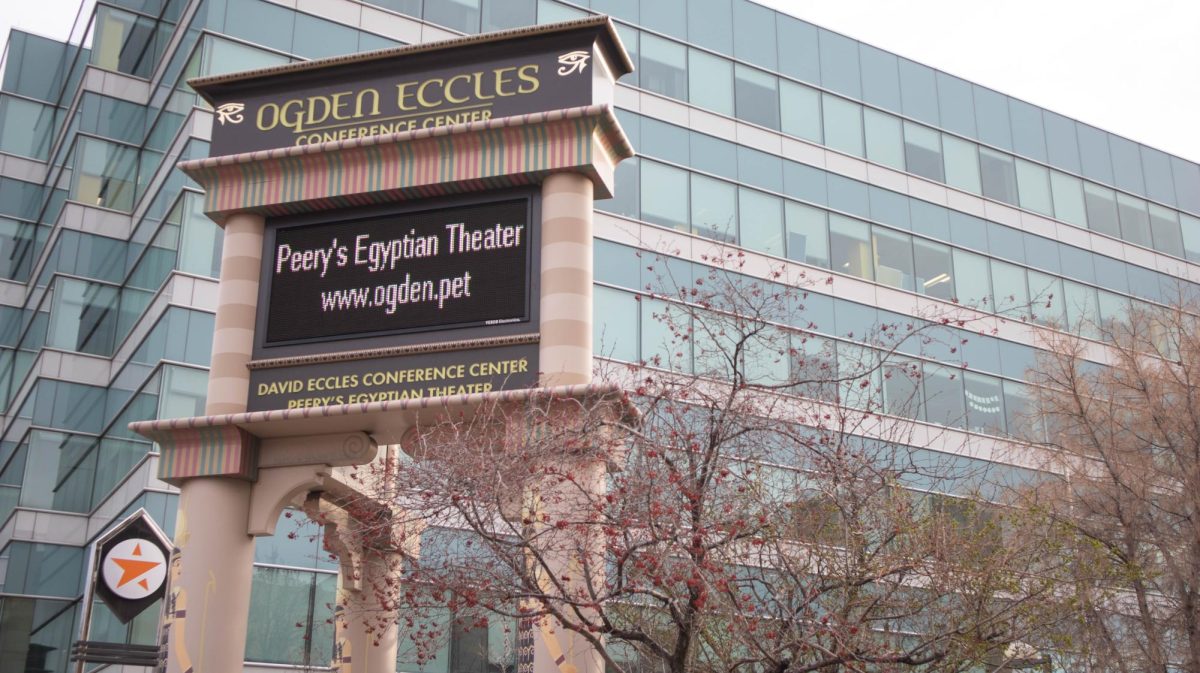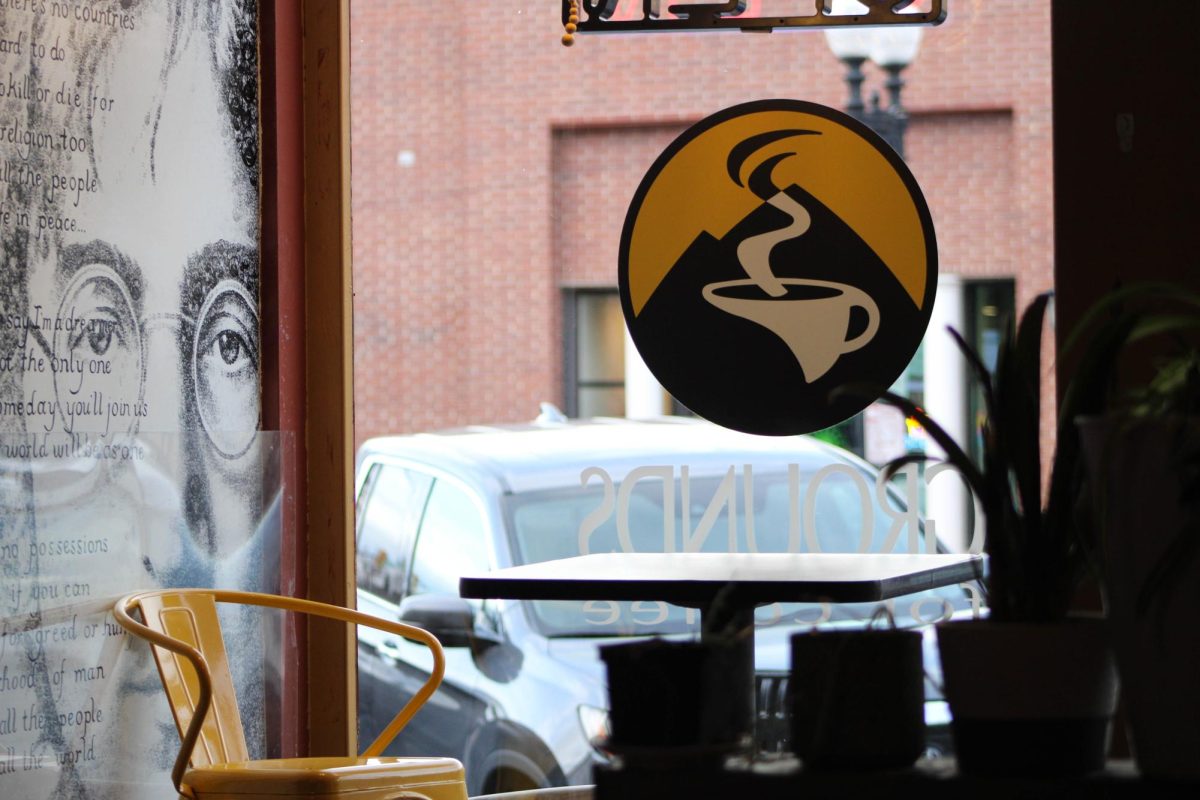Weber State University Criminal Justice Professor Scott Senjo resigned on June 3 after tweeting several threatening comments about protesters and making other derogatory posts and comments in the days prior.
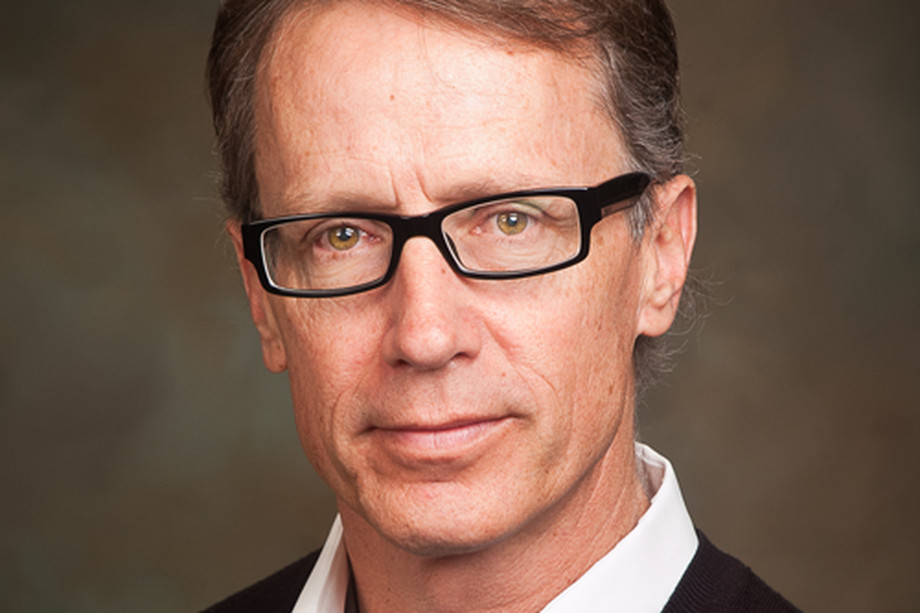
Senjo’s tweets were first reported after he threatened a journalist on May 31.
In tweets that have been since deleted, Senjo called people protesting police brutality “savages and criminals” and threatened to shoot protesters.
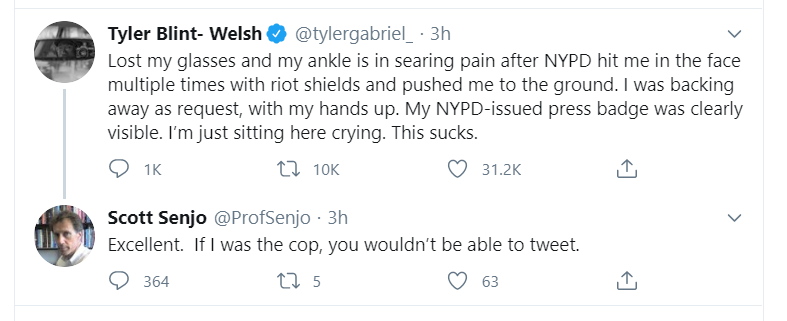
Journalists at The Signpost took screen grabs of these tweets on June 1, after being made aware of the initial tweet threatening Tyler Blint.
Senjo deactivated his Twitter account shortly before resigning from WSU on June 3.
In past months, Senjo endorsed comments criticizing the MeToo movement as one that “hastily destroyed men with decades-old allegations and third-hand hearsay,” advocated for the deportation of U.S. Rep. Ilhan Omar and labeled Rep. Alexandria Ocasio-Cortez a “radical communist.”
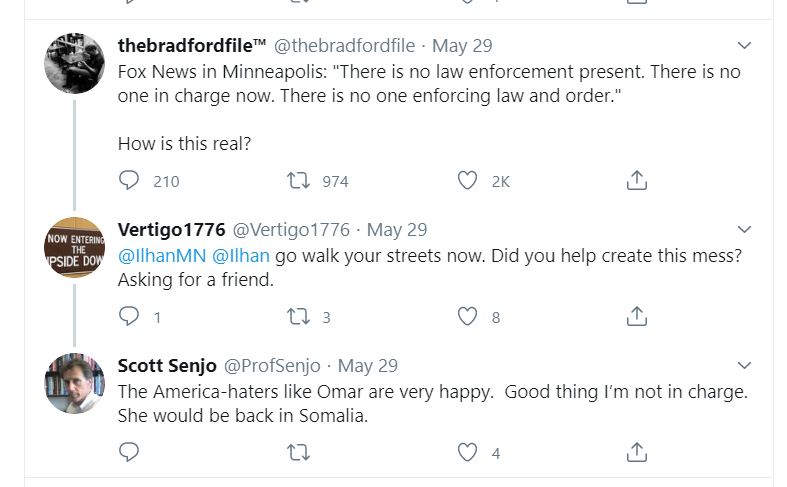
In response to Senjo’s comments, Weber State tweeted the following:
“We are aware of Twitter comments linked to a faculty member and are looking into the issue. Weber State University does not condone violence or threats of violence under any circumstance.”
Neither Senjo or WSU responded for further requests for comment.
Senjo’s tweets aren’t surprising. I wish I could summon surprise for such blatant racism. Instead, the only thing that shocks me is his total disregard for consequences.
His Twitter account was linked to his Weber.edu email, and he listed in his bio that he was a criminal justice professor. He’s not hiding behind an anonymous account, tweeting flagrant threats at protesters. He’s threatening them in plain sight.
After a protester lost his eye to rubber bullets, Senjo called him an idiot:
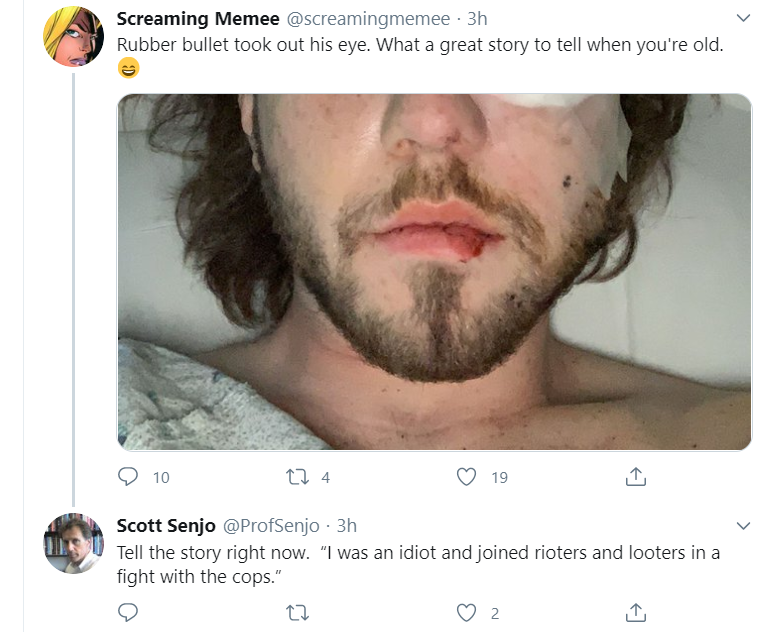
Senjo criticized this driver’s method of driving through a crowd of protesters:
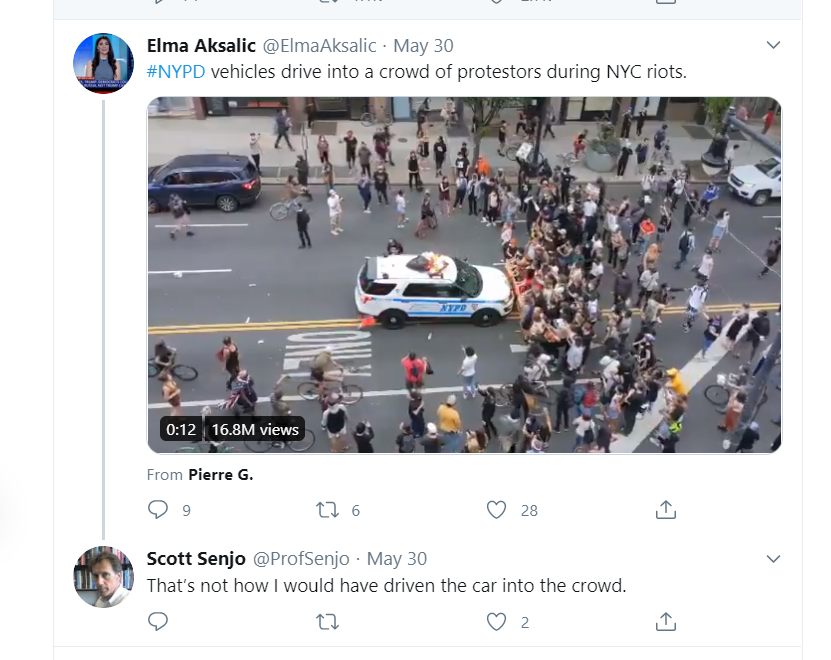
Senjo tweeted that Floyd was not murdered because a police officer killed him in the “course of official duties”:
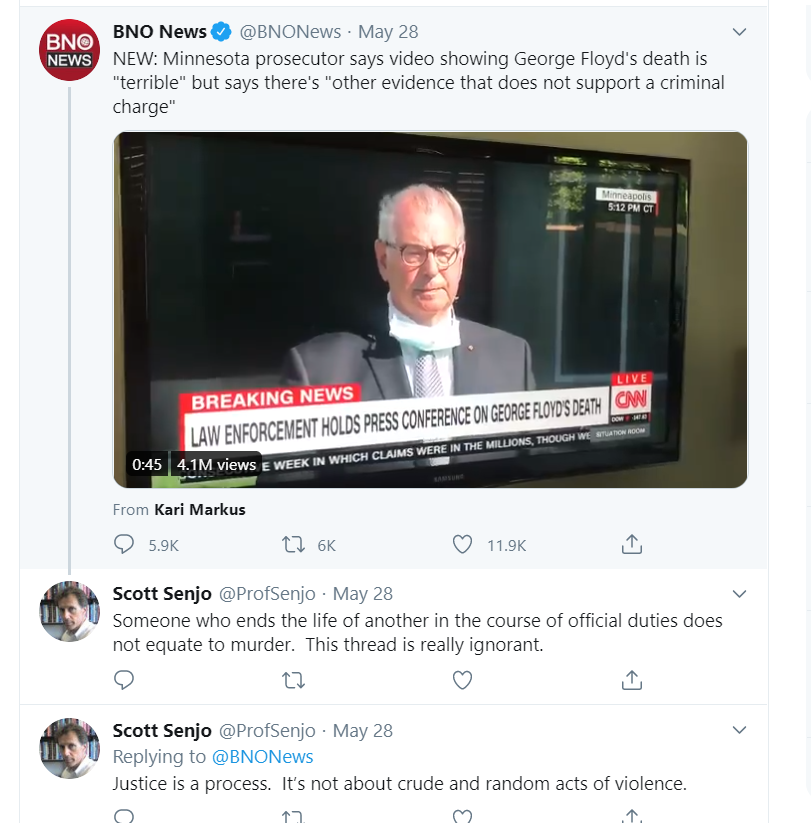
He threatened to show protesters how firearms work first-hand:
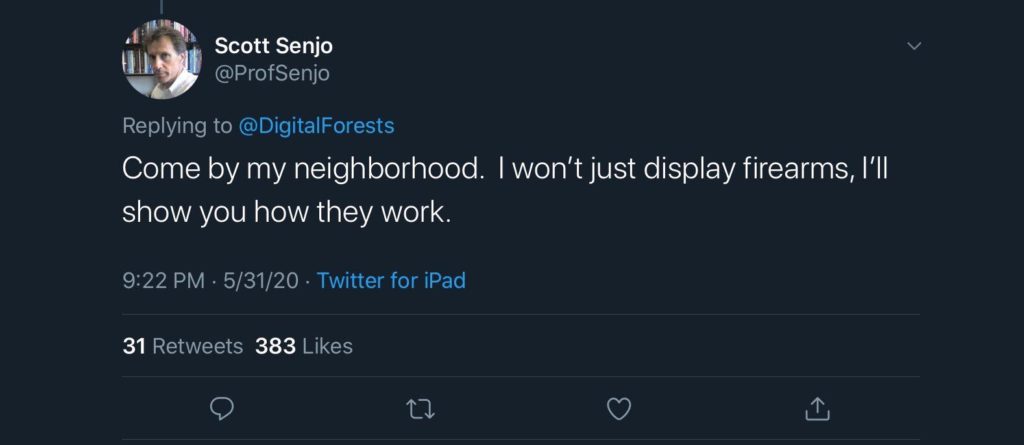
He called protesters “disgusting losers,” then called SLC Mayor Erin Mendenhall an idiot:
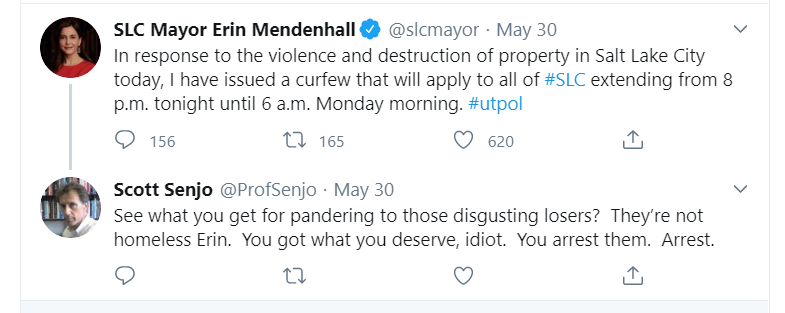
He labeled all protesters “savages and criminals”:
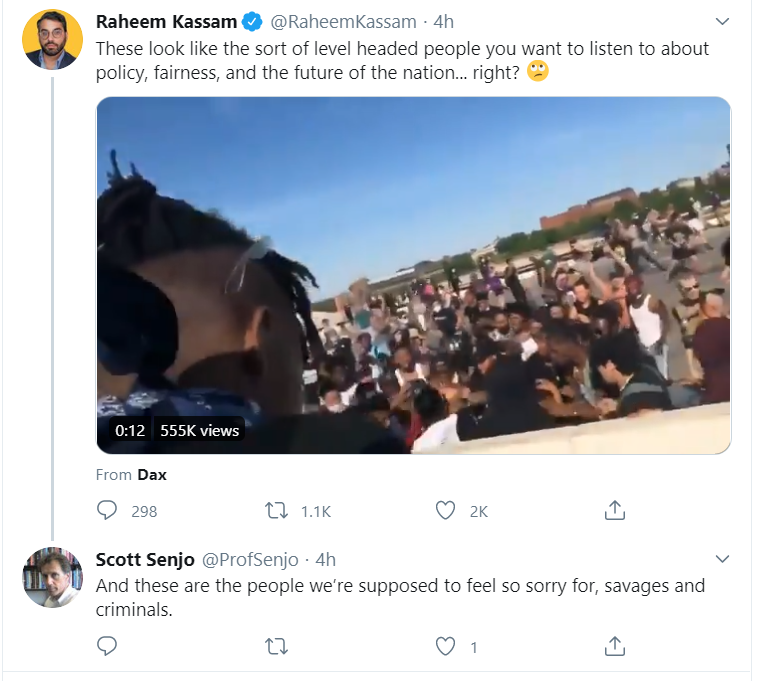
He endorsed a comment that called protesters “punk kids” and hypothesized people were only protesting for social media followings:
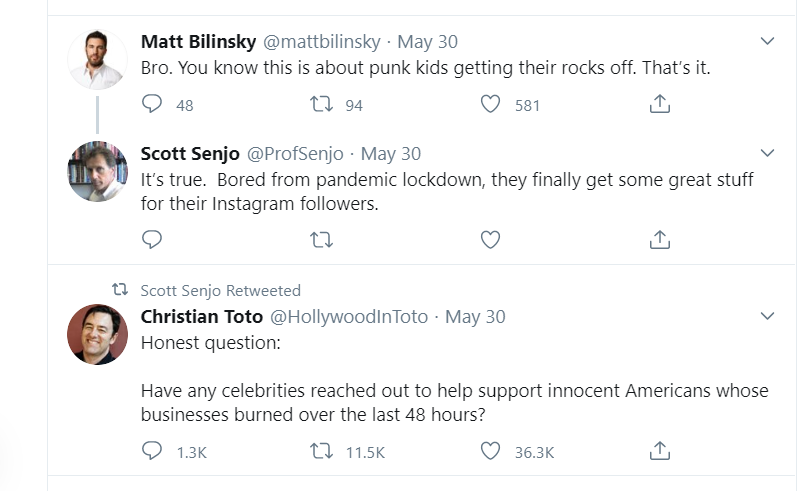
He commented on a post that called for police to put “leftist scum” in their place with the response “Time for the pendulum to swing wildly back in the other direction”:
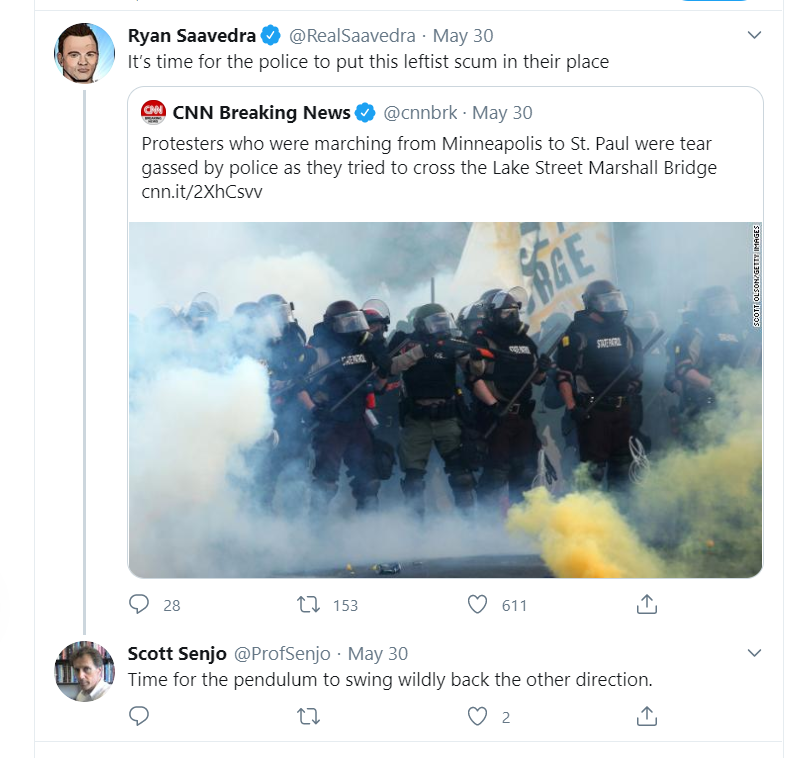
If Americans are protesting police brutality, and Senjo wants the pendulum to swing back the other direction, we can only assume he’s advocating for systemic racism to continue in the same way.
Between 2013 and 2019, police in the United States killed 7,666 Americans, according to research group Mapping Police Violence.
Despite only making up 13 percent of the US population, black Americans are two-and-a-half times more likely than white Americans to be killed by the police.
On May 25, George Floyd became yet another victim of police brutality. He was killed in police custody while unarmed. Protesters are marching in cities around the country demanding justice, and Senjo writes these protesters off as savages and thugs.
In Utah, African Americans comprise just 1.06% of the population, but they account for 10% of police killings.
In Minnesota, where Floyd was murdered, black Americans are four times more likely to be killed by police than white Americans.
It is not savage to demand an end to senseless murder.
Six years ago, Michael Brown was shot and killed by police officers in Ferguson, Missouri. His death set off a national debate about how to reduce police violence.
All these summers later, it feels like nothing has changed. In fact, the numbers have stayed almost level: 1,059 Americans were killed by police in 2014, 1,103 in 2015, 1,071 in 2016, 1,095 in 2017, 1,143 in 2018 and 1,099 in 2019.
Floyd will not be the last black man to die from police brutality. And Senjo’s comments illustrate why there has been so little progress. Black Americans have been peacefully protesting police brutality since 2014, and little has changed. Kaepernick knelt peacefully for two years and was referenced by President Donald Trump as a “son of a bitch.”
Senjo’s resignation comes after WSU placed him on paid leave on June 2, in order to conduct a review of the situation. The university did not ask him to resign.
In an email sent to his department chair and college dean on June 3, Senjo wrote “I studied the situation, and the public fury is too great. I have to resign immediately. There’s no other option.”
Senjo’s tweets were described by university officials in formal statements as “inconsistent with the university’s values.”
WSU President Brad Mortensen said in part that the university stands “with peaceful protesters in Ogden and across the globe and call for change: an end to racism, an end to oppression and intolerance, an end to violence.”
This was WSU’s chance to demonstrate what our university’s values are. By waiting days to take action, putting Senjo on paid leave and finally letting him resign, there are questions in community members’ minds — and in my own — about what their “call for change” entails.
If we’re not willing to take action in our own university, what can we expect to happen “across the globe”?
Protests are continuing nationwide. As of June 3, all four police officers involved in George Floyd’s murder have been charged, but the NAACP is asking for much more than that: legislative reform, making knee holds and choke holds illegal during arrests and an overhaul of our criminal justice system.
This week, Weber State found ourselves face-to-face with the kind of hateful rhetoric that keeps systemic racism in place.
We have a responsibility to stand up for black Americans. We have a responsibility to listen to them, march with them and stay by their side until we establish real change. This issue will not end when the protests do. Black Americans will still be subjected to prejudice and discrimination.
Senjo’s resignation is a necessary step to proving our university values. Now, we need to take it further. We need a more comprehensive statement from the university about why he was not fired. We need community members to remain unified about this issue, even after the protests have ended. Black lives matter, and it’s the least we can do to continue saying that until everyone knows it’s true.
**Editor’s note:** We mistakenly published that Michael Brown was killed in Ferguson, Montana. We have corrected the place of his death as Ferguson, Missouri.










